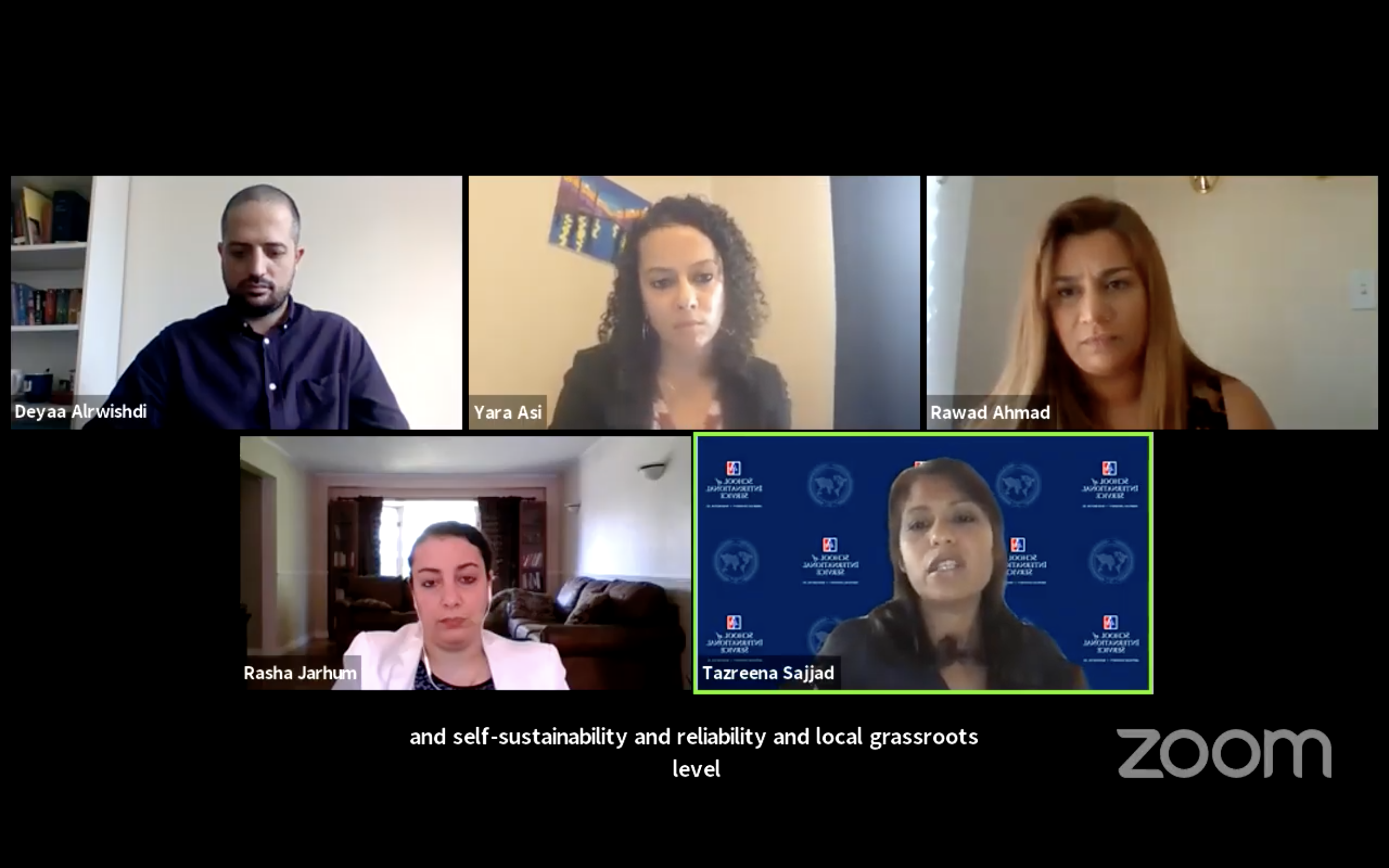
Humanitarian Responses in Syria During COVID-19
For the past ten years, the Syrian Civil War has claimed the lives of over 400,000 people, 5.6 million have fled the country, and 6 million have been internally displaced. Syrian civilians are caught in the middle of the conflict, with many facing discrimination as refugees in their adopted countries, or trapped in Syria, with no protection as an internally displaced person (IDP). Deyaa Alrwishdi, Director of the Syrian Initiative to Combat Sexual and Gender-Based Violence (SGBV) at AUWCL, has worked tirelessly to help the people of his home country, by implementing grassroots advocacy campaigns, providing low or no cost legal service to survivors of SGBV, and more. Just as the war in Syria began to wind down, civilians were once again faced with enormous challenges as the COVID-19 pandemic swept through the globe. As many as four million IDP’s live in Northern Syria, which has no effective governmental presence, and thus is lacking basic necessities such as adequate medical facilities. This proved to be a perfect storm for the COVID-19 outbreak in causing undue harm in already vulnerable communities.
Most of the Syrian population who managed to flee the country do not actually hold refugee status within their new country, a status that comes with legal rights and protections. Many are called “guests,” or other colloquial terms which do not offer any public benefits or legal protections. As COVID-19 began to spread throughout the Middle East in February and March, the Syrian refugee population often became the scapegoat of the virus. In particular, refugees in Lebanon are often subject to racial targeting. Some claim that Syrians are responsible for the spreading of COVID-19 as they are the only ones who can "catch" the virus transmit it throughout the community.
COVID-19 has also revealed that international organizations meant to help the Syrian refugee and IDP community are woefully inadequate in protecting the community against the spread. Not only are there little to no fully equipped medical facilities to treat the ill, the psychosocial effects on Syrians due to media hysteria further exacerbate the worry and fear within the already vulnerable population. The need for support will be even greater after COVID-19 due to the psychological impacts these communities are currently facing. Right now, there are merely four to five psychiatrists for a population of four million in Northern Syria. As communities become desperate for help, people working for various inter-governmental organizations, including the United Nations, have exploited Syrian civilians in need of support and medical attention in exchange for sexual favors. There is little to no accountability mechanism for this sort of exploitation and is proving to erode what little trust Syrian refugees have in the international community.
Deyaa Alrwishdi, who himself fled Syria at the beginning of the Arab Spring, offers optimism in a dismal situation. Practitioners like himself are observing and identifying the problems in these communities and working to solve them. This requires more investment into local leaders and non-profits, who can get citizens back to work in a safe environment, allow for a more informed media presence to mitigate hysteria, and focus on serving those who are in need and not politicizing the pandemic. The Syrian Initiative has worked towards many of these goals, including supporting Syrian civil society actors in strategically engaging with UN justice mechanisms, improving SGBV documentation practices in order to better represent victims, and more. In the future, Deyaa knows he will see a recovered and thriving Syria, and will work towards it everyday with the Syrian Initiative project at AUWCL.